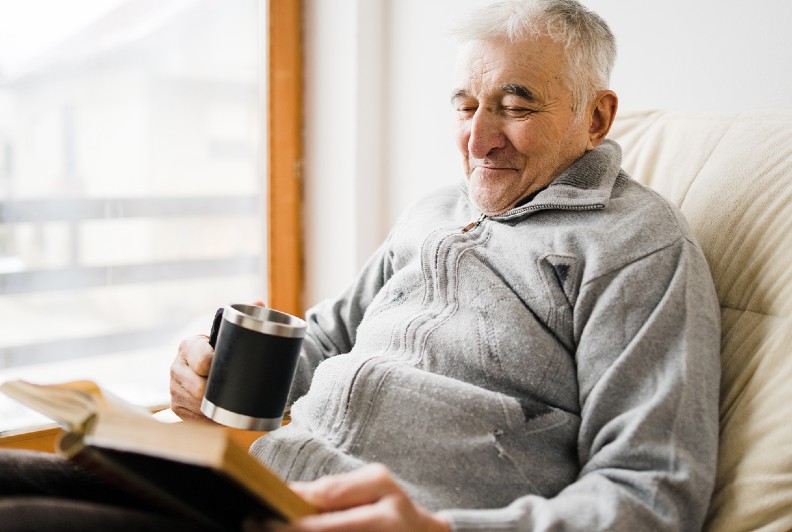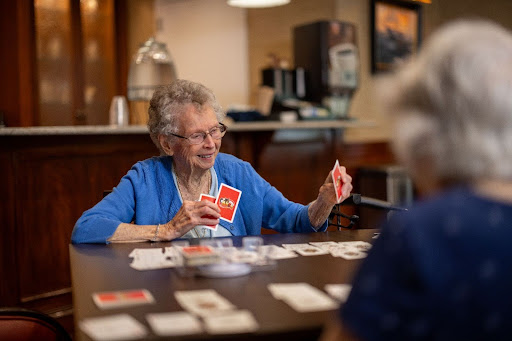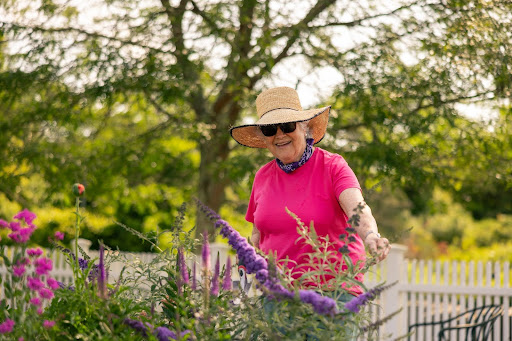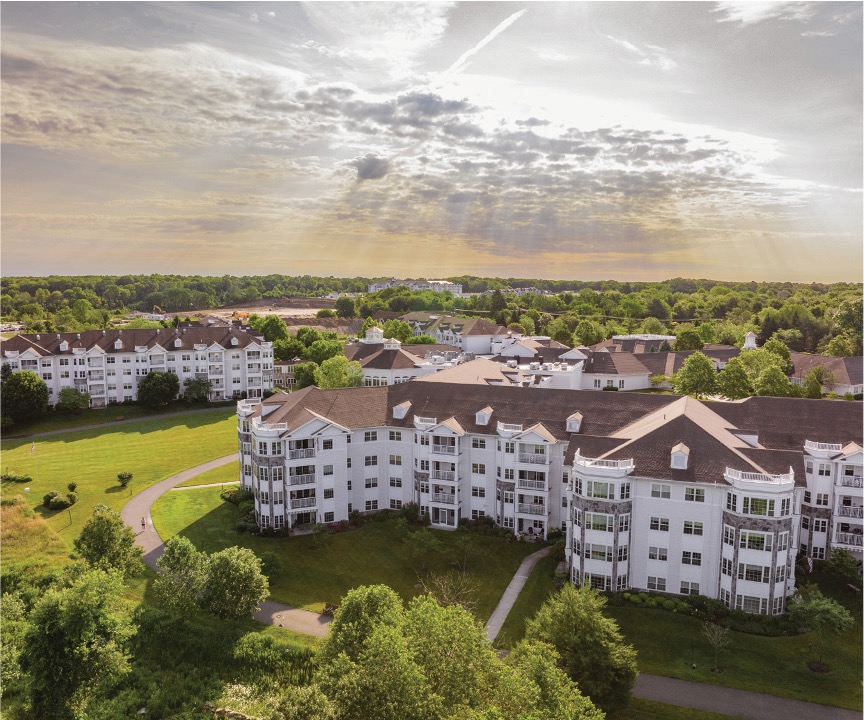
Contact
Stress Management Activities for Seniors
As we age, stress has a greater impact on our overall health. Our bodies have less physical resilience to stress in older age, caused by aging brain cells’ reduced ability to process stress-producing hormones — which can then contribute to other age-related health issues. Chronic senior stress can increase the risk of cardiovascular diseases like hypertension, metabolic diseases like diabetes, and neurodegenerative disorders like depression and forms of dementia. In fact, stress is the common risk factor of 75%-90% of diseases. As our brains struggle to flush out stress hormones in older age, stress relief for seniors becomes more and more important for total wellness. Recognizing signs of stress, understanding the sources of it, and practicing stress management activities for seniors not only helps avoid the risks; it also improves overall wellness for seniors.
Recognizing Senior Stress
In any stage of life, stress manifests itself in many different ways and comes from many different sources. Senior stress, however, usually generates from a few causes specific to aging. The sooner these causes can be identified, the easier they can be managed. Potential causes of stress for older adults generally include:
- Financial stressors, including health care bills
- Changes in lifestyle, like having more unstructured time available, or location due to retirement
- Physical limitations or loss of physical abilities such as vision, hearing, balance or mobility
- Coping with new medical conditions that require lifestyle changes
- The loss of a loved one
- A change in relationship with children
Signs of Senior Stress
Many people, especially older adults, find expressing their feelings of stress can be difficult. If you or a senior in your care may be suffering from chronic stress, recognizing symptoms of anxiety and stress will help you know it’s time to take action.
- Tension headaches
- Indigestion
- Heart palpitations
- Back pain
- Poor concentration
- Indecisiveness
- Anxiety and irritability
- Overeating
- Difficulty sleeping or insomnia
Stress Management Activities for Seniors
Stress-reducing activities can be as unique as the individual experiencing stress. Stress management activities for seniors help ease tension in the short term, but most effectively treat chronic stress when they become a consistent part of the individual’s daily routine. A major factor in reducing stress is triggering the relaxation response, the opposite of stress response. Triggering the relaxation response helps lower blood pressure, heart rate, breathing rate, oxygen consumption and stress hormones. A physician may also want to address underlying conditions — such as high blood pressure, proper nutrition or newly discovered health issues — that go beyond daily stress-reducing activities. Stress relief for seniors takes many forms, but these activities have proven effective for most seniors.
Meditation
Meditation is the act of practicing mindfulness, gratitude, self-reflection and awareness to reduce your heart rate and slow your mind. Practices range from breathing to yoga to simply spending time outdoors. It’s a great way to reduce stress in the moment, anytime, anywhere.
Breathing Exercises
Another effective stress reliever, breathing exercises are easy to do in the moment of stress or as a part of a daily routine. One breathing exercise is to inhale slowly, mentally counting 1–2–3–4, and then exhale slowly, silently counting 4–3–2–1. The key is to focus only on inhaling and exhaling, blocking out all other distractions.
Physical Exercise
Exercising releases endorphins in your brain that boost your mood and calm your mind. A Harvard study has proven that regular exercise improves cardiovascular, respiratory and muscle health, all of which aid in the body’s ability to produce stress-reducing chemicals.
Nutritious Diet
Poor nutrition is one of the most common underlying causes of senior stress. Ensuring a person gets the proper diet — both in the amount of food and in nutritional value — helps both body and mind perform to the fullest potential.
Yoga
Engaging in yoga has a number of physical benefits like improved balance and muscle and bone strength. Perhaps more important, yoga has phenomenal mental benefits. Yoga helps center a person’s mind on what they’re doing in the moment. Plus, the physical acts of breathing and stretching promote endorphins and stress-reducing hormones.
Hobbies
Regardless of interests, beliefs or social circles, everyone should have a hobby with which to relax the mind. Engaging in something constructive that also brings joy is one of the best things people of all ages can do to focus their energy and take a break from everyday stressors.
Socialize
Studies show that isolation is a leading cause of stress and depression in older adults. Simply being around other people in a comfortable setting triggers a stress-reducing chemical in the brain.
Organization
Many people find that cleaning, decluttering and organizing their space can help clear the mind and reduce stress. Organizing one’s stressors can also help. Making a list of all common stressors, even though it may seem overwhelming at first, can help people manage their stressors and give them a clear path to addressing each one.
Moving to a Senior Living Community
Physical or mental limitations caused by aging are a major source of senior stress. At a senior living community like StoneRidge, those with limited mobility and other health issues can get the help they need to live a more independent life, which is likely to significantly reduce age-related stressors. In senior living communities like StoneRidge, a holistic wellness program helps people adapt to the challenges of aging.
Stress-Free Living at StoneRidge
Here at StoneRidge, we prioritize mental, social and emotional health just as much as we consider physical health — it’s our distinctly holistic approach to wellness. HealthyLife® Services allows us to provide programming to help our seniors stay active and healthy in mind and body. From tai chi to meditation classes to woodworking to creative arts, the wellness activities we provide are some of our residents’ favorite parts about living here. It’s why over 90% of them participate in at least one wellness activity. And with a wide range of services and amenities, we make it easy to focus on making your lifestyle stress-free.





